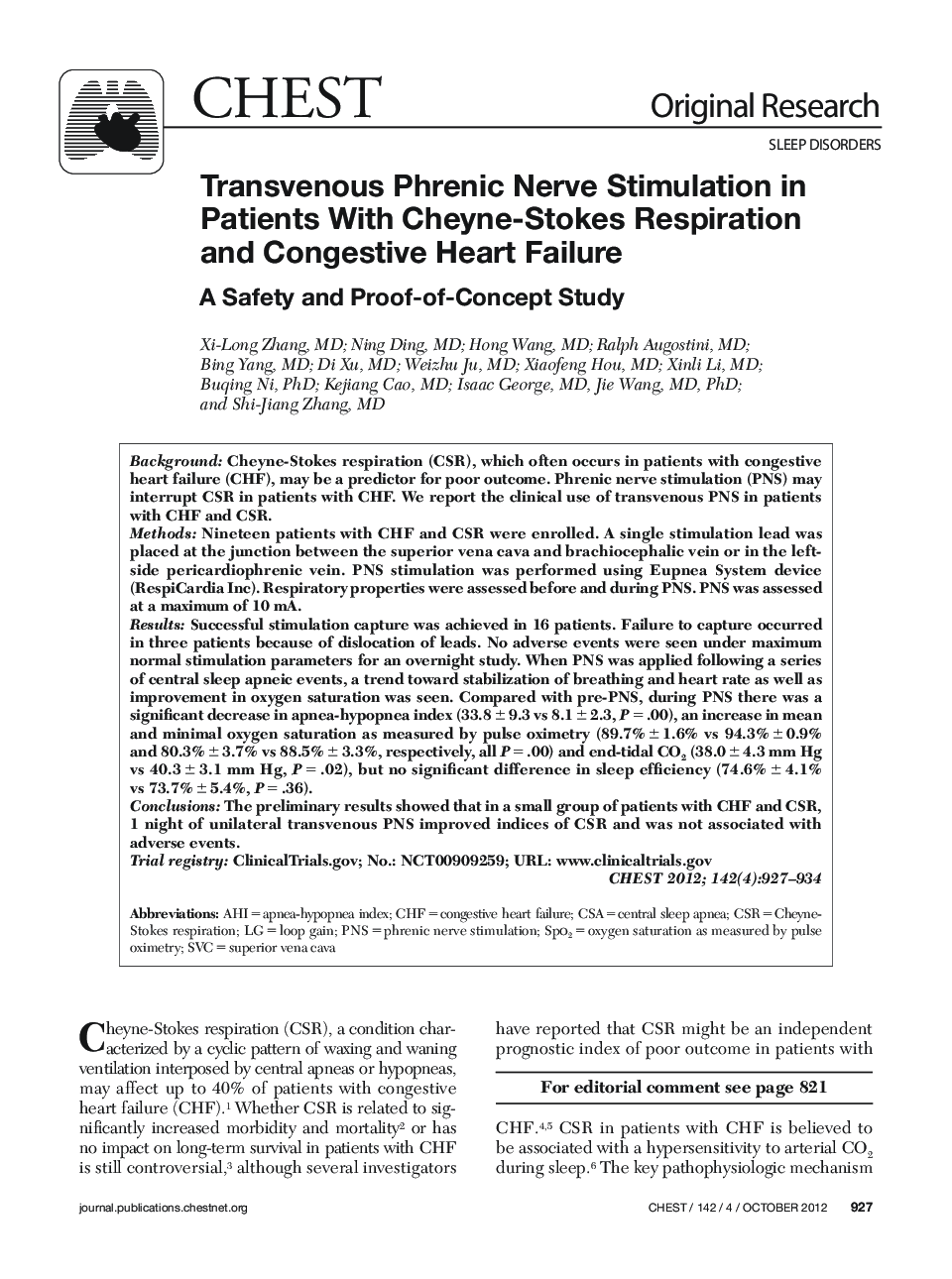| کد مقاله | کد نشریه | سال انتشار | مقاله انگلیسی | نسخه تمام متن |
|---|---|---|---|---|
| 2901698 | 1173356 | 2012 | 8 صفحه PDF | دانلود رایگان |

BackgroundCheyne-Stokes respiration (CSR), which often occurs in patients with congestive heart failure (CHF), may be a predictor for poor outcome. Phrenic nerve stimulation (PNS) may interrupt CSR in patients with CHF. We report the clinical use of transvenous PNS in patients with CHF and CSR.MethodsNineteen patients with CHF and CSR were enrolled. A single stimulation lead was placed at the junction between the superior vena cava and brachiocephalic vein or in the left-side pericardiophrenic vein. PNS stimulation was performed using Eupnea System device (RespiCardia Inc). Respiratory properties were assessed before and during PNS. PNS was assessed at a maximum of 10 mA.ResultsSuccessful stimulation capture was achieved in 16 patients. Failure to capture occurred in three patients because of dislocation of leads. No adverse events were seen under maximum normal stimulation parameters for an overnight study. When PNS was applied following a series of central sleep apneic events, a trend toward stabilization of breathing and heart rate as well as improvement in oxygen saturation was seen. Compared with pre-PNS, during PNS there was a significant decrease in apnea-hypopnea index (33.8 ± 9.3 vs 8.1 ± 2.3, P = .00), an increase in mean and minimal oxygen saturation as measured by pulse oximetry (89.7% ± 1.6% vs 94.3% ± 0.9% and 80.3% ± 3.7% vs 88.5% ± 3.3%, respectively, all P = .00) and end-tidal CO2 (38.0 ± 4.3 mm Hg vs 40.3 ± 3.1 mm Hg, P = .02), but no significant difference in sleep efficiency (74.6% ± 4.1% vs 73.7% ± 5.4%, P = .36).ConclusionsThe preliminary results showed that in a small group of patients with CHF and CSR, 1 night of unilateral transvenous PNS improved indices of CSR and was not associated with adverse events.Trial registryClinicalTrials.gov; No.: NCT00909259; URL: www.clinicaltrials.gov
Journal: Chest - Volume 142, Issue 4, October 2012, Pages 927–934